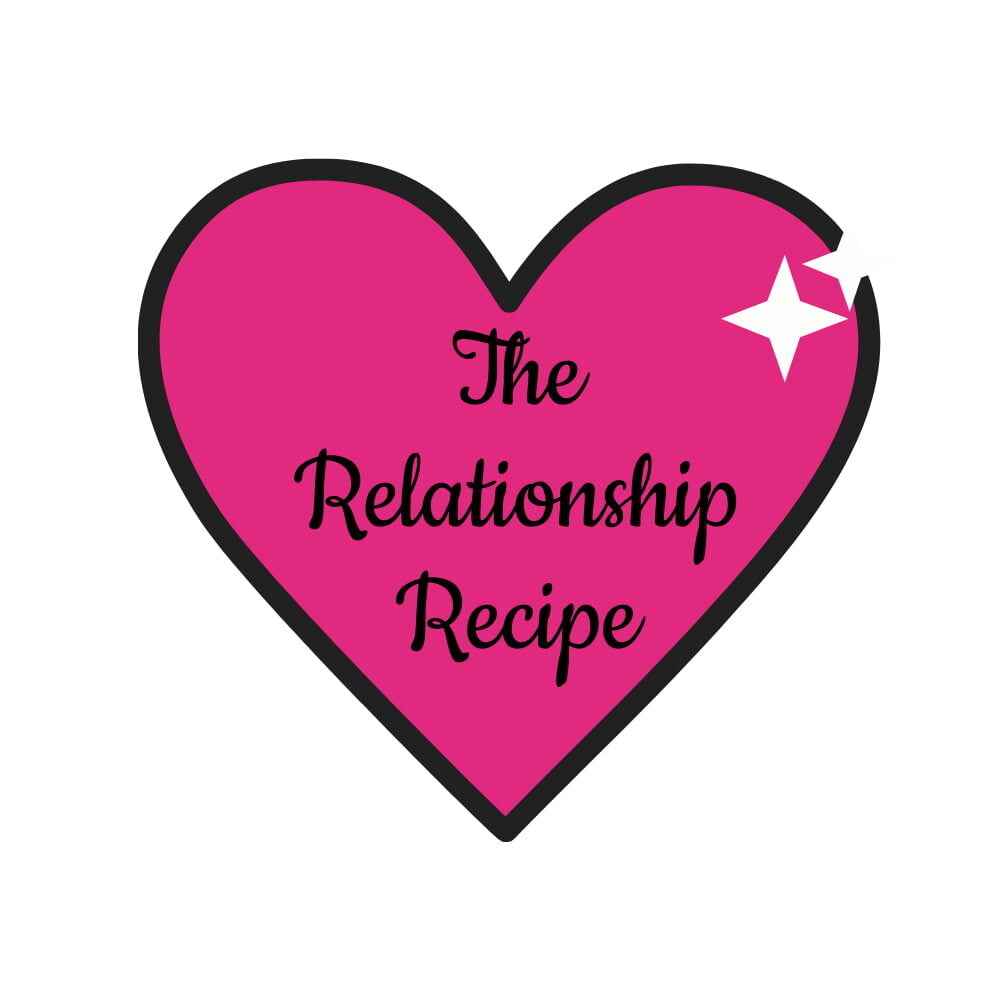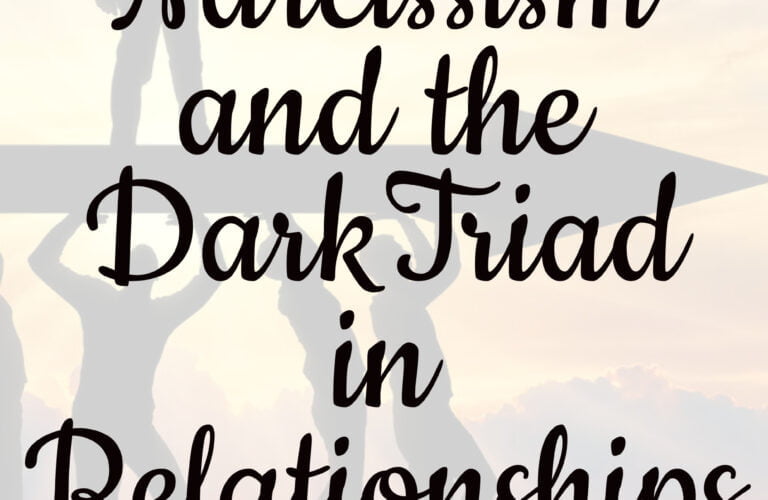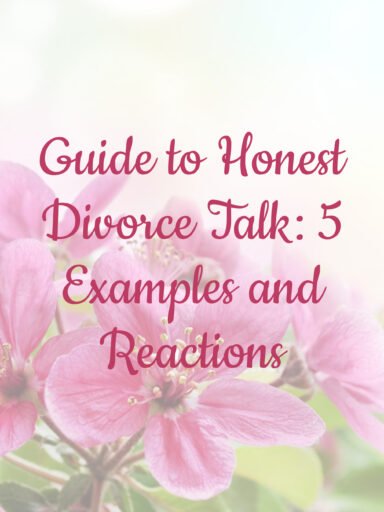In human relationships, some people possess personality traits that can lead to toxic and destructive partnerships. One such personality disorder is narcissism, often associated with the Dark Triad.
As a survivor who navigated the treacherous waters of a relationship with a narcissist, I feel compelled to share my story and offer insights on why Narcissistic Personality Disorder (NPD) is a crucial component of the Dark Triad. I will explain how it negatively impacts relationships, the telltale signs of a narcissistic partner, and ultimately, how to escape such a damaging connection.

How Narcissism is Part of the Dark Triad
The Dark Triad is a term in psychology that refers to three overlapping personality traits: narcissism, Machiavellianism, and psychopathy. While each trait has its distinct characteristics, Narcissistic Personality Disorder (NPD) stands out as a central player due to its focus on self-admiration, entitlement, and a lack of empathy. Narcissists typically display an inflated sense of self-importance, a constant need for admiration, and a tendency to exploit others for their own gain.
In the Dark Triad, Narcissistic Personality Disorder contributes to the manipulation and control exerted by individuals with this disorder. The allure of power, combined with a charming facade, makes narcissists particularly adept at drawing others into their web of deceit.
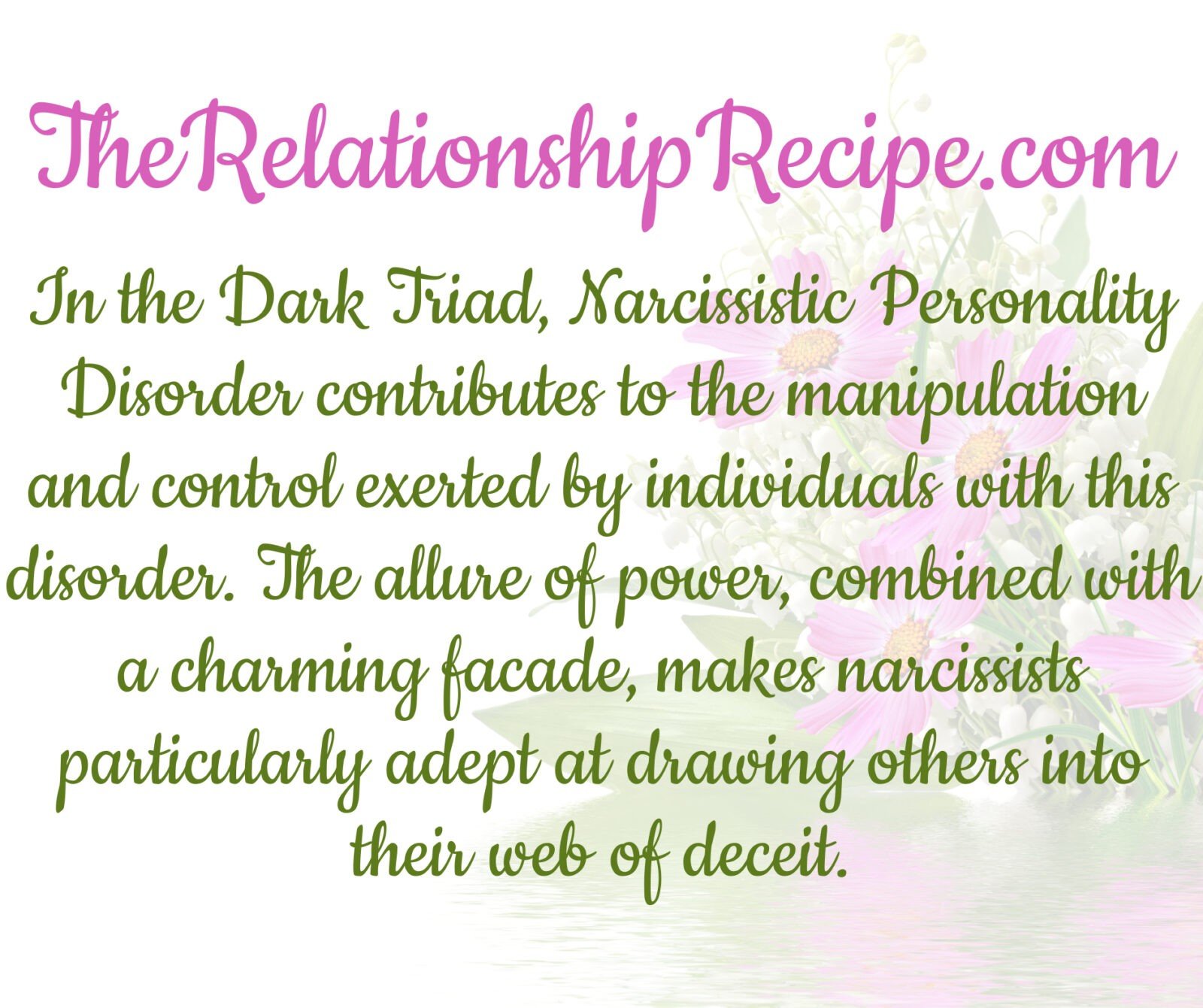
The Negative Impact of Narcissism on Relationships
Navigating a relationship with an egoist is akin to walking on a tightrope over a chasm of emotional turmoil. Narcissists, consumed by their own needs and desires, often fail to reciprocate the emotional support and care expected in a healthy partnership. Their constant need for validation can lead to a one-sided dynamic where the partner becomes a mere prop in the narc’s grandiose narrative.
One of the key ways narcissists negatively affect relationships is through manipulation. They excel at gaslighting, distorting reality to make their partners question their own perceptions and experiences. This manipulation is a powerful tool for the narc to maintain control and undermine the partner’s sense of self-worth.
The Narcissistic Relationship Pattern
Understanding the narcissistic relationship pattern is crucial for recognizing the warning signs early on. At the outset, a person with Narcissistic Personality Disorder (NPD) may appear charming, charismatic, and attentive, showering their partner with affection and compliments. However, as the relationship progresses, the true nature of NPD begins to emerge.
Once the initial love-bombing phase wanes, the narc becomes increasingly self-centered, dismissive of their partner’s needs, and prone to bouts of rage or passive-aggressive behavior when challenged. The relationship becomes a one-sided dance, with the narc always in the spotlight and their partner relegated to a supporting role.

How to Identify a Narcissistic Partner
Recognizing a narcissistic partner requires a keen awareness of certain behavioral traits. Watch out for signs such as a constant need for admiration, a lack of empathy, manipulation and gaslighting, entitlement, and a disregard for your feelings and needs. Additionally, a vain person may struggle with genuine emotional intimacy, viewing relationships as a means to fulfill their own desires rather than a mutual exchange of love and support.
Expanding on the Traits of a Narcissistic Partner:
- Grandiosity and Exaggerated Sense of Self-Importance:
Narcissists often display grandiose fantasies about their achievements, talents, or success. They may exaggerate their accomplishments, expecting constant praise and admiration for even the most minor achievements. This need for constant validation can overshadow their partner’s accomplishments and diminish their sense of worth. - Manipulative Behavior and Gaslighting:
Narcissists are adept at manipulation, using various tactics to control and dominate their partners. Gaslighting is a common technique where they distort reality, causing their partner to doubt their own perceptions and sanity. This manipulation serves to keep the partner off balance, making them more susceptible to the egomaniac’s control. - Lack of Empathy:
Empathy is a fundamental aspect of healthy relationships, but narcissists struggle to understand or share in their partner’s feelings. They may dismiss or invalidate emotions, leaving their partner feeling unheard and emotionally neglected. This lack of empathy is a key factor in the emotional toll taken on the non-narcissistic partner. - Exploitative Behavior:
Narcissists often exploit others for their own gain, whether it be financial, emotional, or social. They may take advantage of their partner’s generosity, using them as a means to fulfill their desires without reciprocating. This exploitative nature can manifest in various ways, such as financial manipulation, emotional dependency, or social manipulation to boost their own image. - Intense Reaction to Criticism:
While everyone may feel defensive when criticized, a person with NPD reacts disproportionately, often with rage or intense anger. They may become defensive and unwilling to acknowledge any faults or mistakes, deflecting blame onto their partner. This hypersensitivity to criticism further isolates the non-narcissistic partner, making open communication difficult. - Shallow Relationships and Superficial Charm:
Narcissists are skilled at creating an initial facade of charm and charisma. They may be excessively charming and engaging during the early stages of a relationship, drawing others in with flattery and compliments. However, these relationships tend to be superficial, lacking genuine emotional depth and intimacy. The charm is often a means to an end, serving their self-interest rather than fostering a meaningful connection. - Sense of Entitlement:
Narcissists believe they are entitled to special treatment and privileges, often expecting others to meet their needs without reciprocation. This entitlement extends to various aspects of the relationship, from expecting constant attention and admiration to demanding that their desires take precedence over their partner’s needs. - Difficulty with Commitment and Intimacy:
Genuine emotional intimacy and commitment can be challenging for a someone with NPD. They may resist committing to a long-term relationship, avoiding discussions about the future, and expressing discomfort with true emotional vulnerability. Their fear of being exposed or limited in their pursuits can lead to a cycle of short-lived relationships. - Control Issues:
Narcissists often crave control in all aspects of the relationship. This can manifest in attempts to control the partner’s actions, decisions, and even social interactions. Their need for dominance can lead to a stifling and restrictive environment for their partner, hindering personal growth and autonomy. - Isolation from Support Networks:
To maintain control, narcissists may strategically isolate their partners from friends and family. By limiting external influences, they ensure that their partner becomes increasingly dependent on them emotionally, further solidifying their control over the relationship.
Recognizing these additional traits can provide a more comprehensive understanding of a narcissistic partner’s behavior. It is crucial for individuals to remain vigilant and trust their instincts when evaluating the health of their relationships. Awareness of these red flags is a powerful tool for anyone seeking to protect themselves from the detrimental effects of a narcissistic partnership.
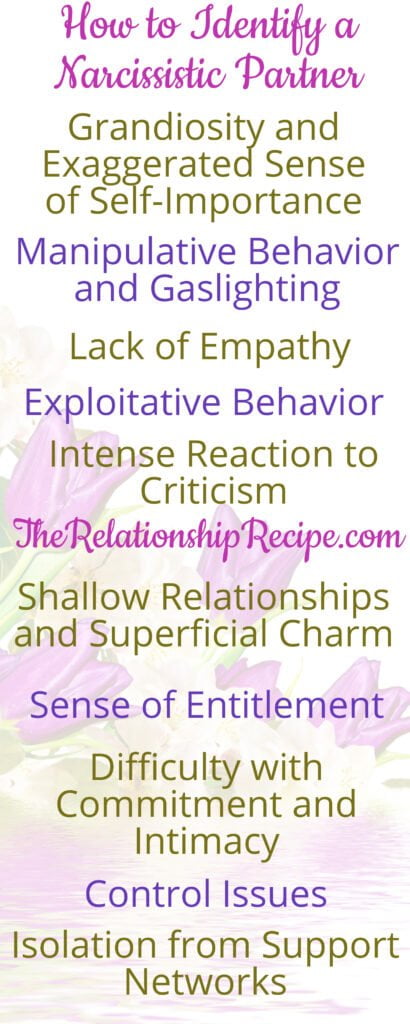
Dealing with a Narcissistic Partner
Coping with a narcissistic partner can be emotionally draining, but there are strategies to minimize the impact on your well-being. Establishing boundaries is crucial; clearly communicate your needs and expectations, and be prepared to enforce those boundaries if they are crossed. Seek support from friends, family, or a therapist who can provide guidance and validation.
Maintaining a strong sense of self is essential when dealing with NPD. Their attempts to erode your self-esteem can be countered by fostering your own interests, pursuing personal growth, and surrounding yourself with positive influences. It’s crucial to recognize that you cannot change a narc; the only person you can control is yourself.

What You Might Encounter When Leaving a Narcissistic Relationship
Leaving a relationship with a narcissist is an emotionally charged endeavor, and the reactions one might encounter can be both tumultuous and unpredictable. Narcissists often struggle with a profound fear of abandonment, and the realization that their partner is disentangling from their control can trigger intense reactions.
Initially, there might be love-bombing attempts, where the narcissist employs excessive charm and affection to reel the departing partner back in. However, as the reality of the separation sets in, the narcissist’s mask of charm can swiftly morph into anger, resentment, or even aggression.
They may employ guilt-tripping tactics, blaming the partner for the relationship’s demise and portraying themselves as the victim. Alternatively, they might resort to character assassination, attempting to damage the departing partner’s reputation and self-esteem.
It’s essential for those leaving a narcissistic relationship to anticipate these reactions, seek support from friends or professionals, and maintain a steadfast commitment to their own well-being throughout the challenging process of disentanglement.
Escaping a Relationship with a Narcissist
Escaping a relationship with a egoist is a challenging journey, but it is possible with careful planning and support. The first step is to acknowledge the toxic nature of the relationship and accept that change is necessary for your well-being. Develop a support network of friends, family, or therapists who can provide emotional assistance and practical guidance.
Create a safety plan, especially if the narcissistic partner has displayed controlling or abusive behavior. This may involve seeking legal advice, securing a safe place to stay, and taking steps to protect your finances. When ending the relationship, be prepared for resistance from the egomaniac, who may resort to manipulation, guilt-tripping, or even aggression to maintain control.

Embracing a Future Free from Narcissistic Chains
Escaping a relationship from someone with NPD is not merely a physical departure but a journey toward reclaiming your sense of self. It involves healing from the emotional scars inflicted during the partnership and rediscovering your worth outside the shadow of NPD.
Understanding the role of narcissism in the Dark Triad is important for recognizing and avoiding toxic relationships. A survivor’s warning can serve as a beacon of hope for those trapped in the web of someone with Narcissistic Personality Disorder, offering insights into the negative impact of such partnerships, the narcissistic relationship pattern, and practical steps to escape.
Before You Go…
Do you feel like this??
I’m feeling under the weather, worn out, and aged beyond my years. My energy reserves are depleted, leaving me in a state of waiting. Waiting for a kind word, longing for his response, yearning to be recognized. I’m grappling with a sense of confusion, wondering where I’ve gone wrong. Intellectually, I know this isn’t healthy for me, yet I find myself unable to break away. It’s a cycle of my own making, and I feel compelled to push through, to be more tolerant, in hopes that everything will eventually fall into place.
These sentiments are all too familiar to those who have experienced relationships or encounters with narcissists. The struggle is often magnified when it comes to choosing a partner. Have you found yourself repeatedly disappointed, feeling used, or burdened with guilt?
Chances are, a friend has pointed out your pattern of falling for the same type of person. Perhaps you’ve begun to recognize it yourself, contemplating a fundamental shift in your attraction toward certain individuals. Maybe you’re currently entangled in such a relationship, yearning for liberation but uncertain if you’re seeing the situation clearly.
If you need a more in depth look at narcissism and narcissistic abuse, in the realm of romantic relationships – you need to check out this book:
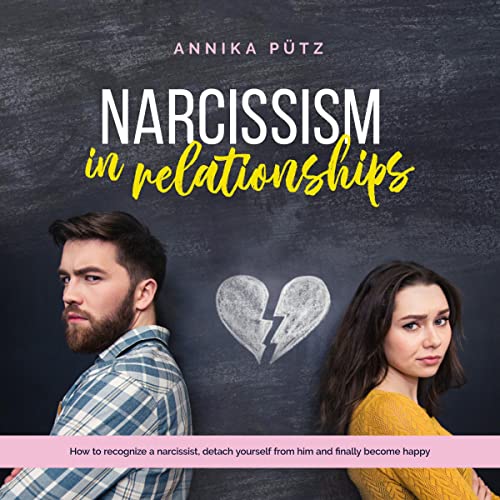
https://www.healthline.com/health/mental-health/am-i-dating-a-narcissist
https://www.psychalive.org/narcissistic-relationships/
This post may contain affiliate links. I earn from qualifying Amazon purchases at no extra cost to you.
